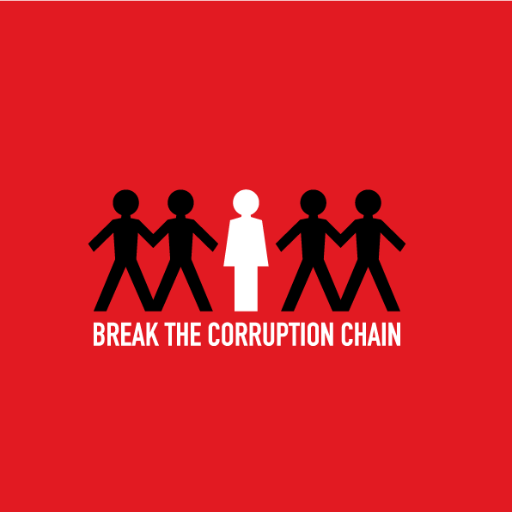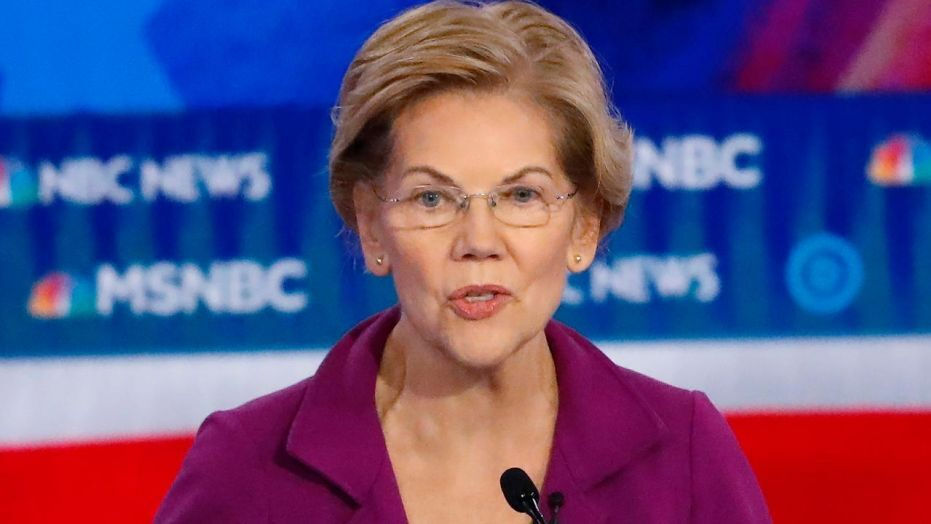Fighting Legal Corruption in the US
- fernandaduque9
- Nov 28, 2019
- 6 min read
Updated: Dec 12, 2019

Over the years, corruption has become one of the most significant debates within political economy and various other literature debates. Corruption has been characterised as the primary impediment for economic growth, having a huge impact on countries and hence the world as a whole (Kaufmann & Vicente, 2011). Corruption has usually been defined as “the abuse of public authority for private interest resulting in a biased allocation of public resources” (Mungiu-Pippidi, 2013). Accordantly with past literature, the public sector has been the main motor for the studies of corruption. Following the definition given by Mungiu-Pippidi, corruption has been considered an illegal act. Nevertheless, today, new forms of corruption have been created in the form of other less obvious means, and some have been accepted as legal, involving median voter, business-oriented interest groups, and economic elites.
Gilens & Page (2014) argue that organized groups and economic elites in the United States have a huge impact on the decision-making of policies excluding the interests of ordinary citizens. Their findings indicate that the majority of citizens have no voice in determining policy outcomes, while elites and lobbyists have the biggest influence on the creation of new legislation. As a consequence, the question is “how can we fight legal corruption in the US?”; “how do we unrig the system?”; and “what are the solutions?”. This paper will present the main problems of the US government and will give solutions to fight “legal corruption”.
The first problem could be considered the US electoral system, in which voters are forced to choose between two candidates, and hence between the lesser of two evils. Norton (2009), believes that the US electoral system undermines the words “free and fair”. There are many ways in which the elections are unfair. Initially, it was through intimidation, illegal exclusions, and fraud. For instance, in the 2000 presidential election, the State of Florida removed the list of felons in such a way that individuals who were non-felons, mostly Black-Americans were excluded and denied the right to vote (Norton, 2009). However, today, the US electoral system has been favouring elites through the inclusion of the legal use of representational rules, boundaries of electoral districts, and campaign finance. As a consequence, legal corruption has been reinforced, damaging the rule of democracy and working against the average citizens’ interests. In order to solve the problem, permitting voters to rank their preferred candidates with ranked choice voting, would be the solution. Through the rank choice system, the population will have the opportunity to choose and rank the candidates based on their preference (Toplak, 2017). As a consequence, third-party or independent candidates will have the opportunity to fight for office, voters will get more choices at the ballot and the majority will be represented by the winning party.
The second problem within the US system is often named gerrymandering. McCarty et al. (2009) describe gerrymandering as a process involving the creation of artificial district lines in order to benefit one person, party or group over another. Michael Wines (2019), similarly defines gerrymandering as a procedure conducted by governing parties trying to keep themselves in power by inclining the political map in their advantage. Through the drawing of legislative districts, parties are able to win as many seats as possible. Since the year 2010, high-speed computing and detailed maps have led to the facilitation of gerrymandering by political parties. In the courts, various types of gerrymandering have either been considered constitutional or unconstitutional; hence, there are no clear legislation rules that show the illegality of gerrymandering. The state legislatures have, in most cases, used gerrymandering in the lines of ethnic groups, to either increase or decrease minority representation in a state. For instance, a conversation between Republicans was recorded in the state of Ohio, whereby it was demonstrated how gerrymandering favoured them. Furthermore, it demonstrated how ethnic identity was considered, and since most Black-Americans supported the Democratic Party, they apparently eliminated an estimated 13,000 African-Americans from Jim Raussen’s district (WCPO, 2002). In other words, the recorded conversation is a clear example of how the interests of the population are ignored, while those of the elites are endorsed. In order to end gerrymandering, legislation should take redistricting out of the hands of politicians and put voters in control. As California, the rest of the states, should create an independent, fully transparent redistricting commissions following a legal framework to ensure accurate representation.
As mentioned before, policy outcomes are influenced by interest groups, more particularly lobbyists. Lobbying involves the act of being paid by professional advocates to argue for certain legislation in bodies such as in Congress. Lobbyists can be considered as “information givers” in support of their cause, who drive legislation and government in accordance to their interests (Sahajwani, 2019). Nevertheless, lobbying is legal in the US as it requires registering with the Secretary of the Senate and the Clerk of the House and groups must file disclosures of their activities according to the Lobbying Disclosure Act of 1995. Consequently, it has been interpreted by courts as an activity taking part within the constitutional boundaries. Unfortunately, lobbying has undermined the interests of the general public by favouring organized groups as well as the economic elites, who want specific legislation to aid them. One of the reformed lobbyists named Jimmy Williams states: “Years of legalized bribery had exposed me to the worst elements of our country’s political workings. Not even my half-million-a-year salary could outweigh my conscience (Williams, 2018).” The statement coming from a former lobbyist, shows how lobbying has real consequences on the US.
However, Congress has the responsibility of making lobbying illegal in many ways. For instance, they can close the revolving door, whereby staffers, as well as, congress members become lobbyists because of the budget. Hence, the Congress could increase salaries and ameliorate the working conditions to prevent staffers from becoming lobbyists. In addition, through the increase of funds for the Congressional Research Service and Government Accountability Office, Congress could become independent from lobbyists. However, the main solution for lobbying will be to make it illegal for politicians to take money from lobbyists to prevent the creation of laws that could and have hurt voters. Through legal framework, lobbying could become illegal, consequently giving the general public mass a voice.
Lastly, the US can end legal corruption in the US by putting an end to secret money. Secret money is the money given to campaign candidates by specific groups (Goldenberg, 2013). The money could come from big corporations and other elite individuals. Unfortunately, the secret money from these “independent groups” is influencing and threatening the democracy of voters in the US. To a certain extent, secret donors end up dictating what legislation will be passed by the Congress ignoring the interests of the average citizens. Instead, politicians start to represent the interests of the “independent groups.”
In conclusion, legal corruption has greatly undermined and influenced elections and decision-making in the US. Through legal corruption, the decisions and elections are made to favour the organized groups and economic elites and excluding average citizens as well as mass-based interests. However, several solutions can be implemented to ensure the general public is involved and democracy is upheld. One of the solutions includes fixing the broken election system by introducing a better system such as the rank choice system, which allows the mass population to be fully involved in choosing a leader. Other solutions include ending gerrymandering, stopping lobbying, and putting an end to secret money.
Bloodgood, E. (2011). The interest group analogy: International non-governmental advocacy organisations in international politics. Review of International Studies, 37(1), 93-120. doi:10.1017/S0260210510001051
Gilens, M., & Page, B. I. (2014). Testing theories of American politics: Elites, interest groups, and average citizens. Perspectives on politics, 12(3), 564-581.
Goldenberg, S. (2013). Secret funding helped build vast network of climate denial thinktanks. The Guardian, 14, 681-694.
Kaufmann, D., & Vicente, P. C. (2011). Legal corruption. Economics & Politics, 23(2), 195-219.
McCarty, N., Poole, K. T., & Rosenthal, H. (2009). Does gerrymandering cause polarization?. American Journal of Political Science, 53(3), 666-680.
Mungiu-Pippidi, A. (2013). Controlling Corruption Through Collective Action. Journal of Democracy, [online] 24(1), pp.101-115. Available at: https://moodle.ucl.ac.uk/pluginfile.php/1284087/mod_resource/content/2/Mungiu_Collective%20Action.pdf [Accessed 2 Dec. 2019].
Norton A. (2009). Elections and Voting. Retrieved on December 9th, 2019 from https://www.ssc.wisc.edu/~wright/ContemporaryAmericanSociety/Chapter%2017%20--%20Voting%20--%20Norton%20August.pdf
SAHAJWANI, M. (2019). The Differences Between Bribery And Lobbying. [online] Investopedia. Available at: https://www.investopedia.com/financial-edge/0912/the-differences-between-bribery-and-lobbying.aspx[Accessed 6 Dec. 2019].
Toplak J. (2017). "Preferential Voting: Definition and Classification". Lex Localis – Journal of Local Self-Government. 15 (4): 737–761.
WCPO (2002). April 29: Republican Party Politics (Part II). Retrieved on December 9th, 2019 from https://web.archive.org/web/20020520185434/http://wcpo.com/wcpo/localshows/iteam/cdd905.html
Williams J. (2018). I was a lobbyist for more than 6 years. I quit. My conscience couldn’t take it anymore. Retrieved on December 9, 2019 from https://www.vox.com/first-person/2017/6/29/15886936/political-lobbying-lobbyist-big-money-politics
Wines, M. (2019). What Is Gerrymandering? And Why Did the Supreme Court Rule on It?. [online] Nytimes.com. Available at: https://www.nytimes.com/2019/06/27/us/what-is-gerrymandering.html [Accessed 4 Dec. 2019].
For further understanding of the term "Gerrymandering" watch the next video from The Washington Post.
To better understand how Gerrymandering could be solved, read the next article from The Washington Post by Alice Li, Jayne Orenstein and Dan Balz written in 2018. The article is a clear example of how the state of California has started to fight gerrymandering.
How Ranked Choice Voting works:




Comments